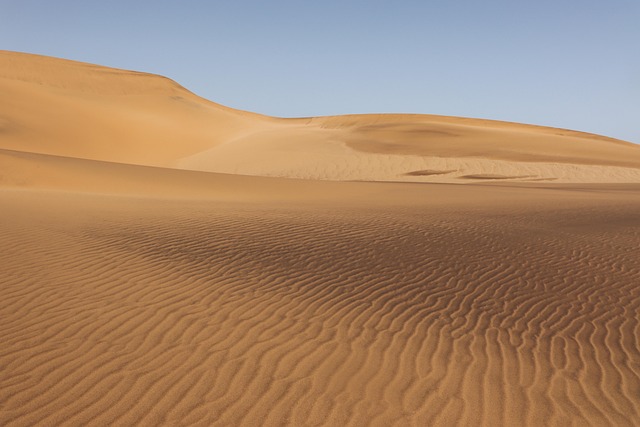As we traverse the vast landscapes of our planet, few sights evoke awe and concern as those dominated by desert sand. Once lush terrains are now succumbing to the relentless grip of desertification, a phenomenon intricately linked to climate change. This unsettling transformation holds significant implications not just for the environment, but also for the livelihoods of millions.
The alarming pace at which deserts are expanding is largely fueled by climatic shifts. Areas that were once fertile have become barren, their soils depleted and devoid of life. Imagine a world where the vibrant greens of flourishing ecosystems are replaced by the monotonous yellows and browns of arid landscapes. This erosion of biodiversity not only impacts the wildlife that depends on these habitats but also threatens our global food security.
As temperatures rise and rainfall patterns shift, regions previously rich in natural resources are facing the harsh reality of desert sand encroaching upon their lands. Farmers who rely on stable climates find themselves grappling with crop failures and water shortages. This struggle leads to a surge in migration, as communities are forced to leave their homes in search of more hospitable environments. It’s a stark reminder of the delicate balance we tread, where the impacts of climate change cannot be ignored.
Moreover, another layer of complexity arises with the human activities that exacerbate the situation. Deforestation, overgrazing, and unsustainable land use practices contribute significantly to the degradation of once-productive lands. As we loose our commitment to caring for the earth, we see the landscape transform from a diverse tapestry of life into a monotonous stretch of desert sand. This vicious cycle can feel disheartening, but it’s essential to acknowledge it so we can inspire change.
Combating desertification is more than an ecological necessity; it’s a moral imperative. By embracing sustainable land management practices, investing in reforestation projects, and supporting local communities in their stewardship of the land, we can push back against the creeping tide of desert sand. Advocacy and education also play crucial roles in raising awareness about the importance of preserving our ecosystems. Together, we can forge solutions that honor our planet and its inhabitants, ensuring that future generations will not inherit a world dominated by aridity and suffering.
As the impacts of climate change continue to unfold, the story of desertification becomes a prominent chapter in our collective narrative. The way we respond today will determine whether vast expanses of desert sand become permanent fixtures across our globe or if we can reclaim and restore these vital ecosystems. It is time for us to unite and confront this challenge, safeguarding our environment, our communities, and ultimately, our future.



